NEW YORK, February 8th, 2024 – WeWork Inc. (“WeWork”), the leading global flexible space provider, today released the findings of its inaugural Global Office Trends Report. This comprehensive study looks at how the traditional concept of “the office” has fundamentally – and irreversibly – changed in the last few years, driven by the pandemic and a generational shift in what employees want and expect from their workplace.
Business leaders are prioritizing “specialized” workspaces
Analyzing thousands of data points gathered over the last four years, the report reveals that offices are less densely populated than before the pandemic. Instead business leaders are prioritizing “specialized” workspaces – such as “All Hands” rooms and classrooms – to bolster culture and productivity. There is also an increased appetite for lounge space as the world pivots from formal setups and executive offices to more relaxed work environments that blend hospitality and comfort and create an elevated in-person experience.
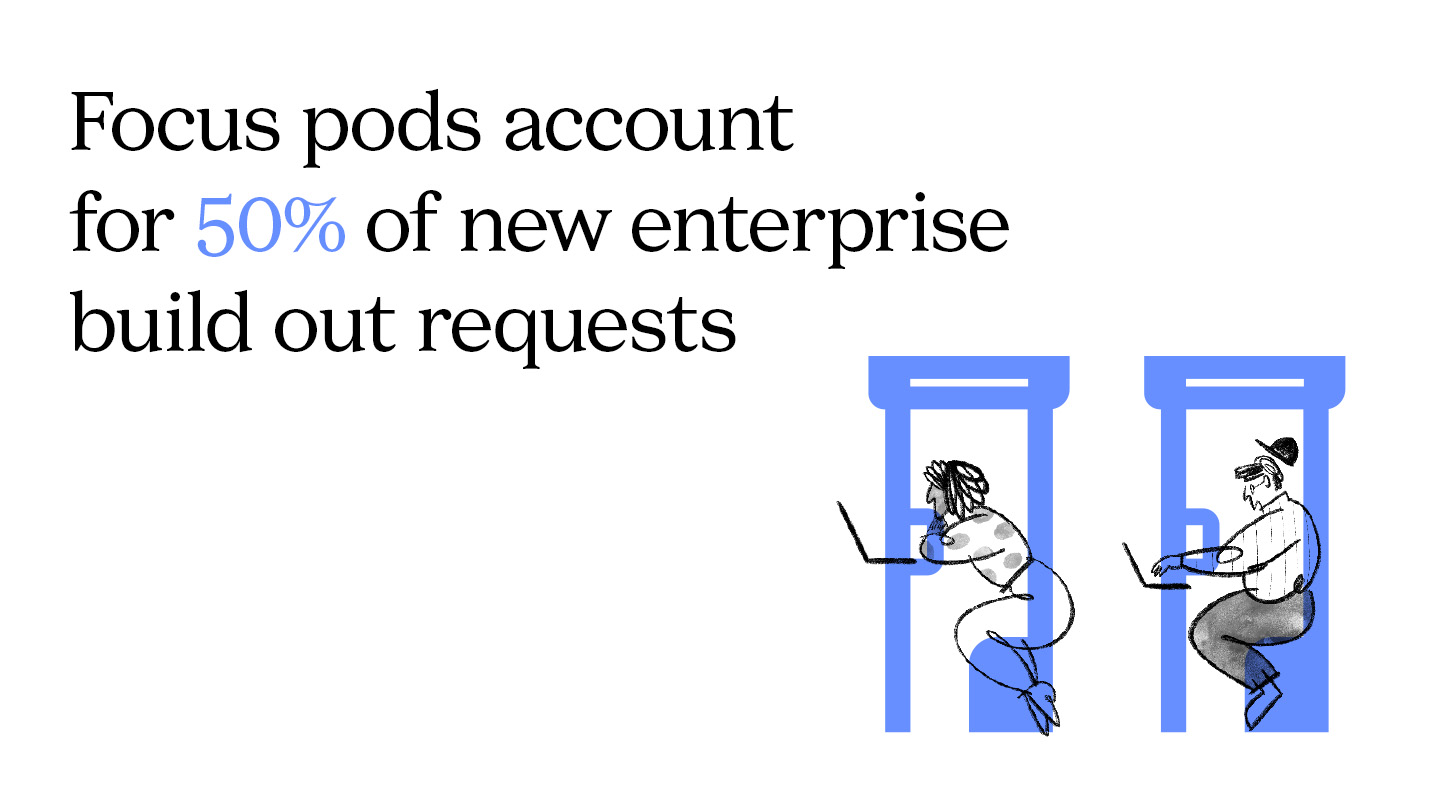
“Dynamic” offices are a must
With the criteria for the modern workplace continuing to evolve at rapid pace, WeWork’s design report reveals that a dynamic office is a non-negotiable requirement for companies looking to put their best foot forward in this new world of work. Replacing the traditional, impersonal and dense office layouts that became a staple for corporate headquarters over the years, this emerging design concept relates to reconfigurable and purpose-driven space design, diverse furniture groupings and uniform lighting grids that enable companies to shapeshift their workspaces with ease and minimal cost implications.
In this era, having this innate flexibility is particularly valuable, not only to accommodate a wide variety of work-related needs, but to provide leaders with the ability to meet evolving business priorities and employee expectations of what the contemporary modular office should look like today, and into the future.
Ebbie Wisecarver, Global Head of Design, WeWork – “Our first-ever design report leverages unique insights from thousands of member companies across the globe to delve into the modern trends that are defining today’s workplaces. What’s incredibly clear is that there is no one-size-fits-all approach. Employees want a repurposed office for collaboration and social interactions that cannot be achieved at home, while more and more business leaders are demanding intentionally designed spaces that bolster company culture and productivity.
“As needs and expectations continue to evolve, the “dynamic” office is a solid bet for business leaders looking to future-proof their workplace strategies, as they benefit from having the adaptability to test and learn from their return-to-office, tailor their environments to meet employee demand as well as effortlessly enhance their offering for years to come.”
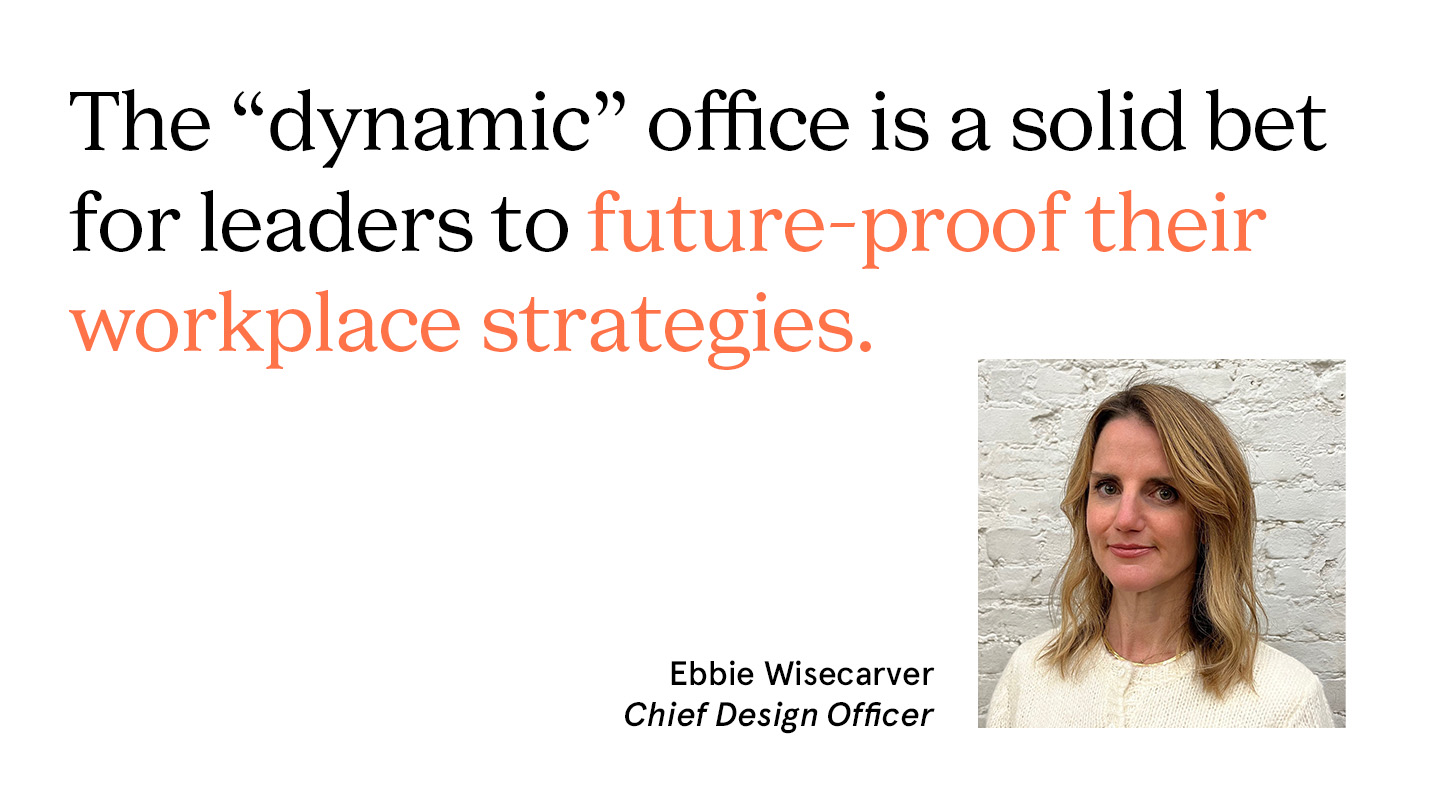
Here are the top findings from WeWork’s design report:
1.Open floor plans and lounge space are on the rise whilst executive offices and meeting rooms are on the decline.
WeWork found that spaces designed to foster collaboration, such as communal areas and “lounge” space, increased to 19.3% in 2023 compared to pre-pandemic. And as many companies push for a “return to office” and rebuild spaces to be more dynamic and elastic, many have opted to repurpose space formerly used for executives’ offices into lounge, meeting, or working space; underscoring the new purpose of the office for collaboration, social interaction and connection. This replaces office space that was typically more segmented prior to the pandemic.
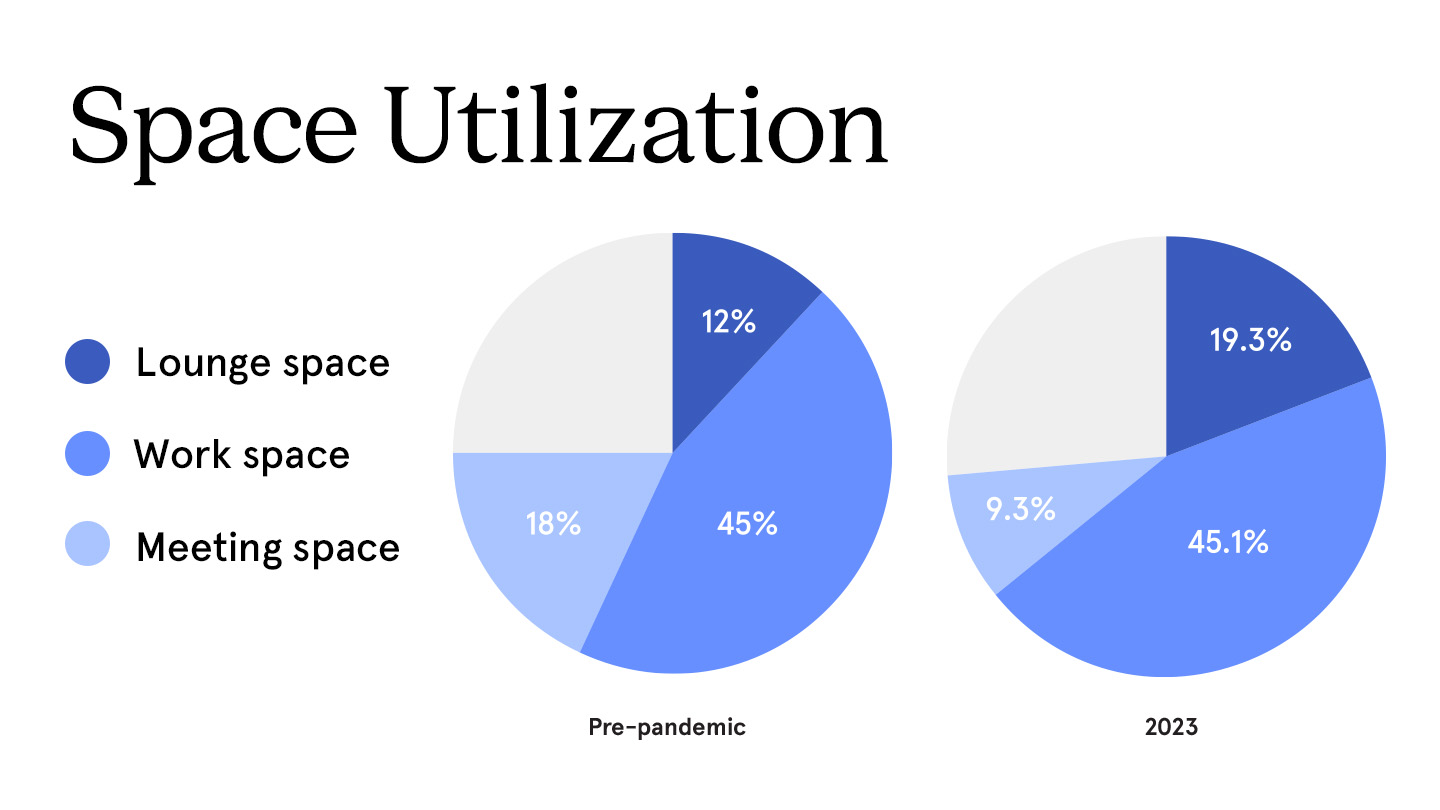
2.Non-traditional workspaces are the new go-to amenity
“Non-traditional” workspaces are the new go-to amenity for business leaders who are prioritizing space that helps bolster productivity and company culture. WeWork’s report found that 68% of “non-traditional” space requests were aiming to improve productivity – such as customized board rooms and focus rooms. Comparatively, 32% of requests were for spaces that enhance company culture and employee wellbeing, such as “All Hands” spaces and wellness rooms. This data provides an indication of how companies are now recognising the value of office design to create business impact.
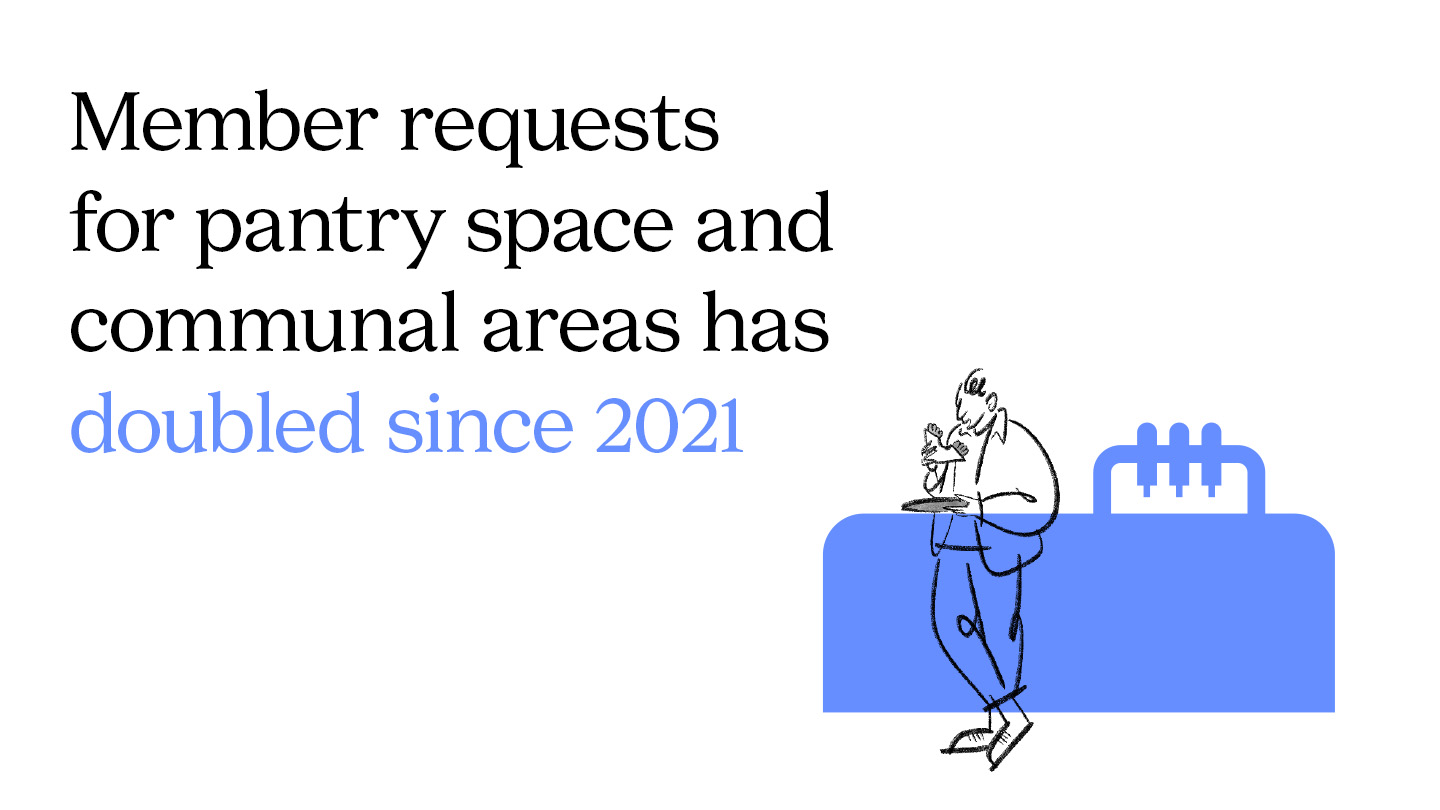
3.Offices today are less densely populated than pre-pandemic offices.
The average density of offices experienced a significant drop and has continued to remain below pre-pandemic levels. This can be explained by the rise of flexible policies, where most companies no longer plan for 100% of their workforces to be in the office at the same time. This has prompted companies to rethink their layouts to optimize for lounge space and “work points” that foster collaboration but that can also be reconfigured to create work stations on busier days in the office.
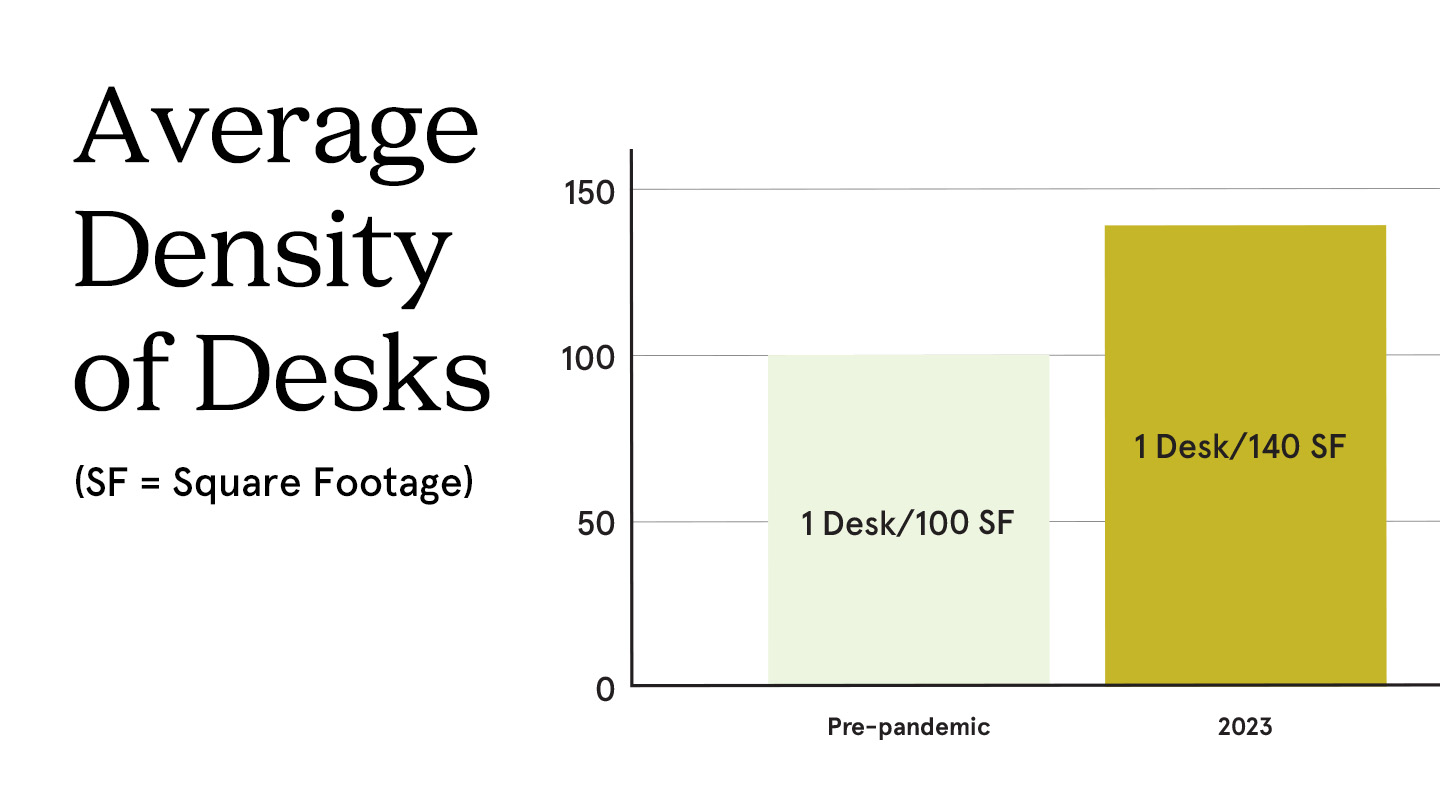
What’s Trending
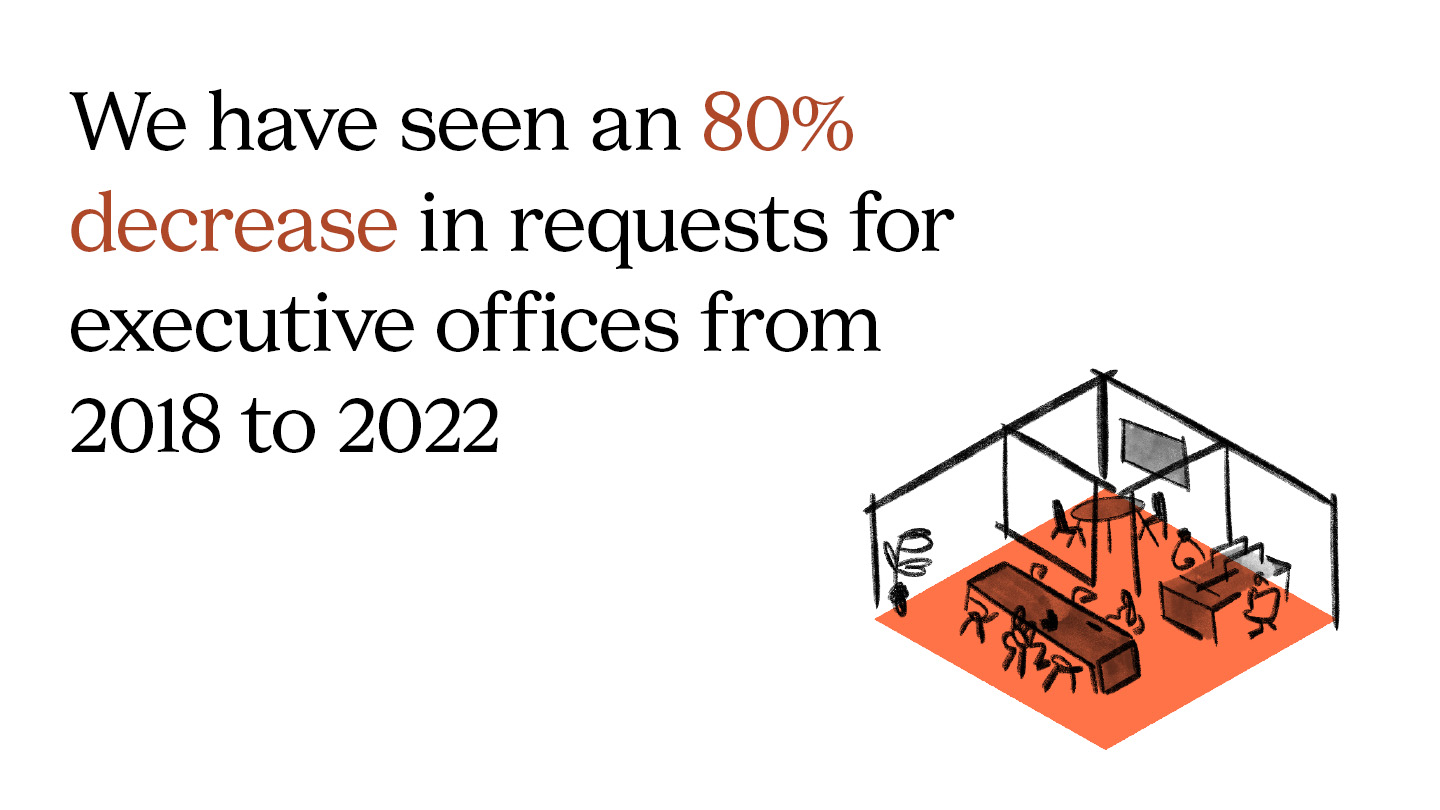
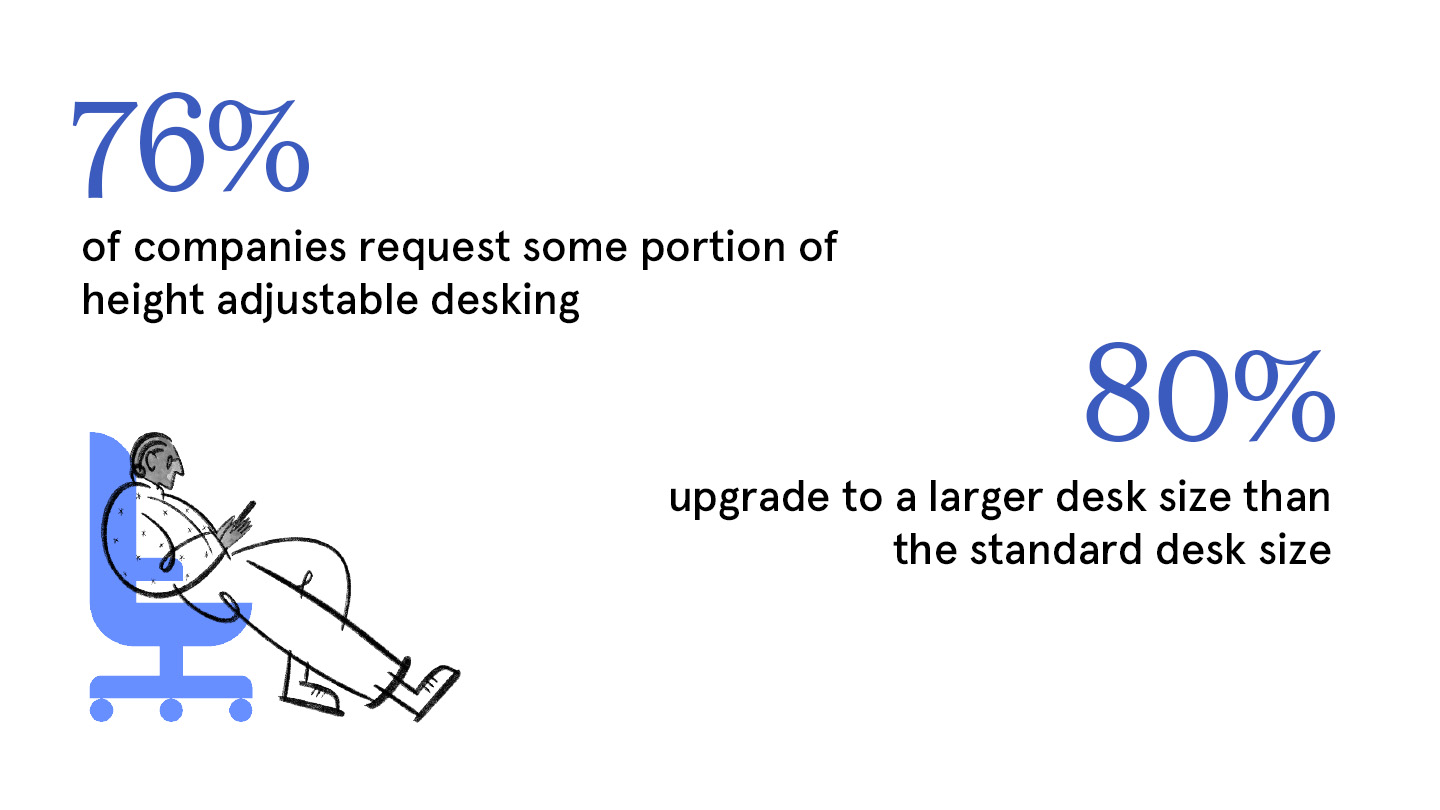
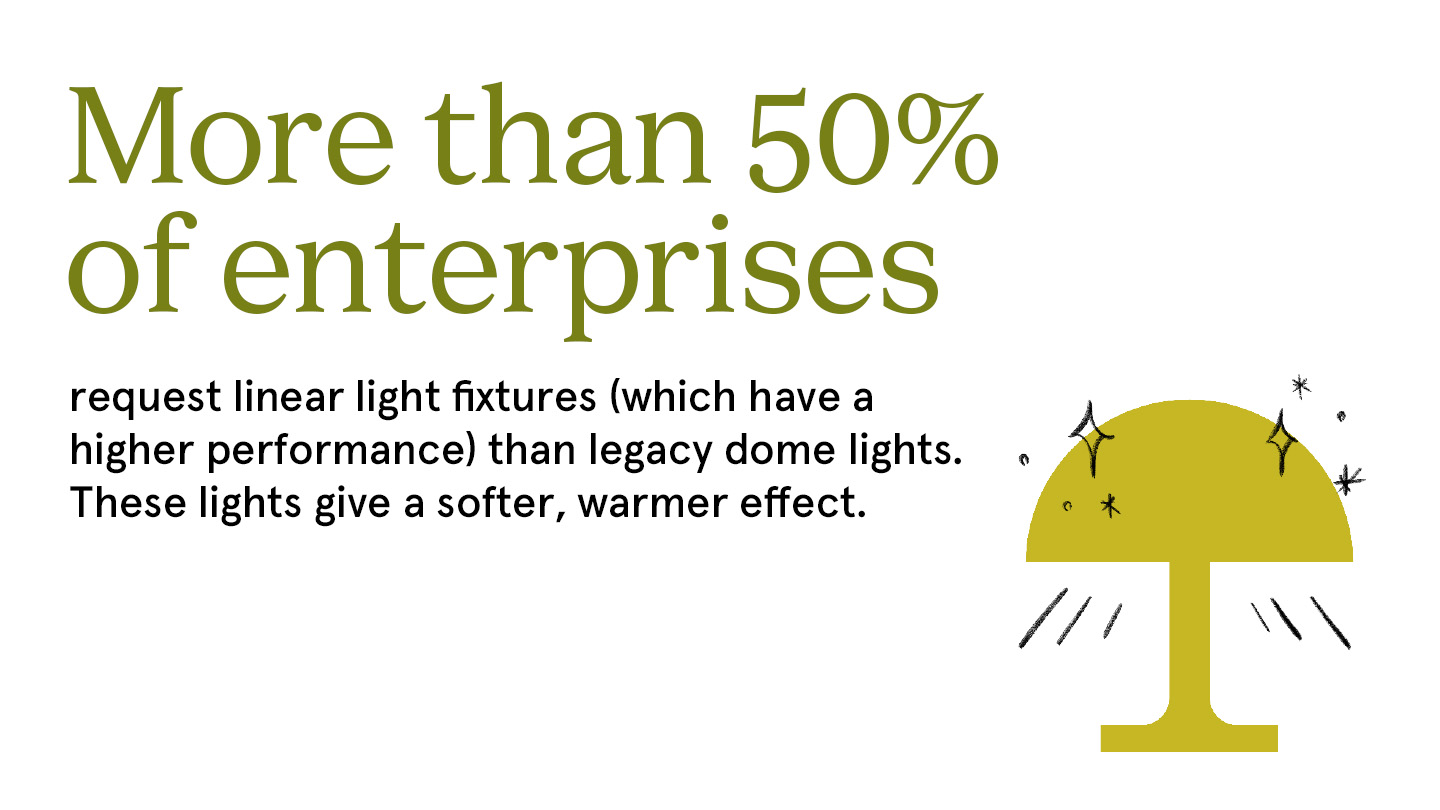
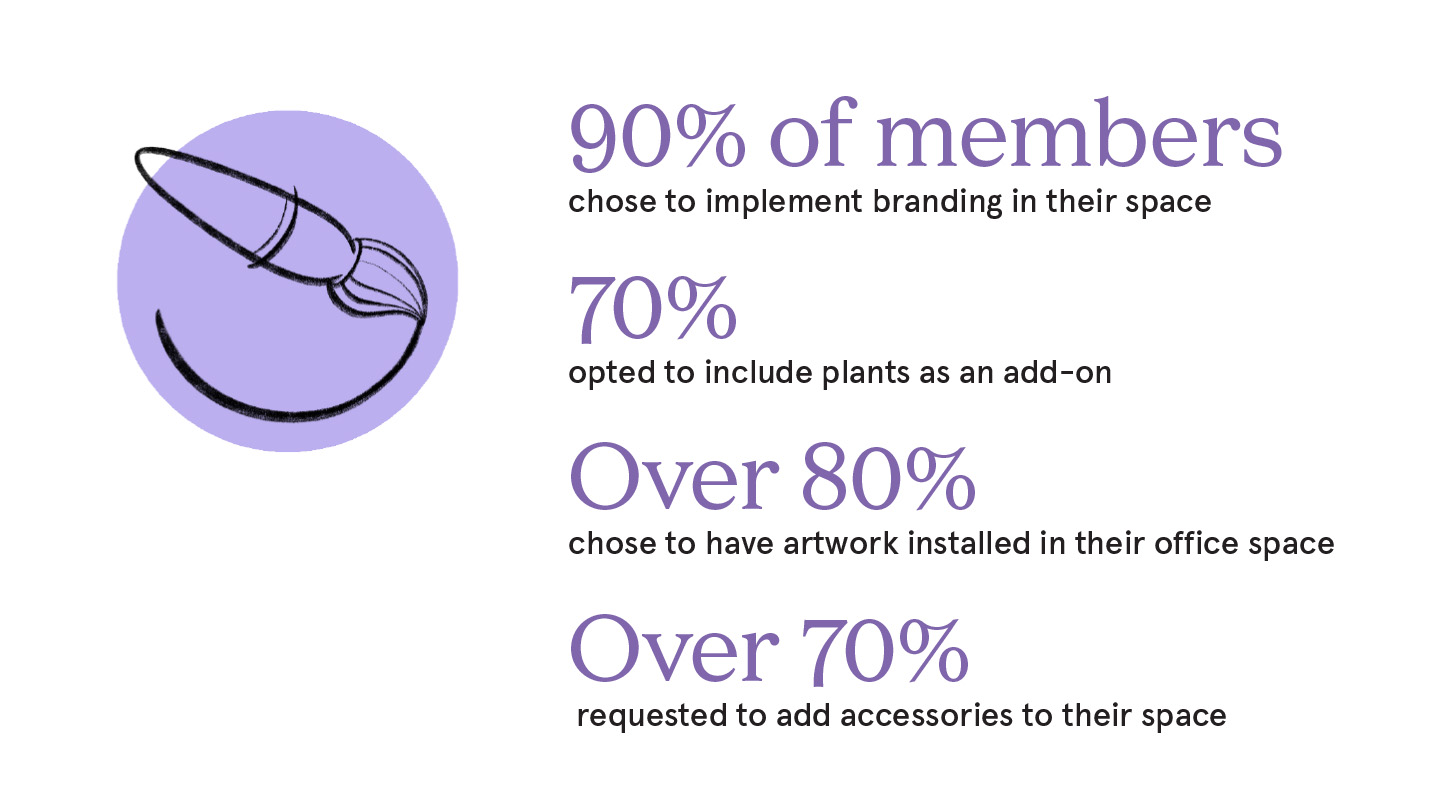

Multiverse’s customized HQ setup in London.
Libby Dangoor, Chief of Staff, Multiverse – “To achieve our ambitious goals of transforming the worlds of work and learning, we‘re focused on empowering our people to deliver their best work. Through our hybrid approach, Multiversers have the freedom to work on their own terms, harnessing the advantages of remote work along with the value of in-person collaboration and a great office environment at WeWork.”
Click here to read the full report.
+++
*Report Methodology
Our report is based on a combination of qualitative and quantitative data from global WeWork member accounts and customization requests from May 2019 to June 2023. Specifically our original analysis looked at:
- 25 major enterprise deals since June 2021
- Over 3000 enterprise member requests for design-related requirements
- A scan of existing asset locations, new turnkey deals and new customization deals
- Conversations with enterprise member account managers
- WeWork’s Basis Of Design (BOD) documentation: a design standard document established with key member accounts
Aggregate Data Source: Numbers are estimated based on facilities & internal data.
About WeWork
WeWork Inc. was founded in 2010 with the vision to create environments where people and companies come together and do their best work. Since then, we’ve become the leading global flexible space provider committed to delivering technology-driven turnkey solutions, flexible spaces, and community experiences. For more information about WeWork, please visit us at wework.com.



